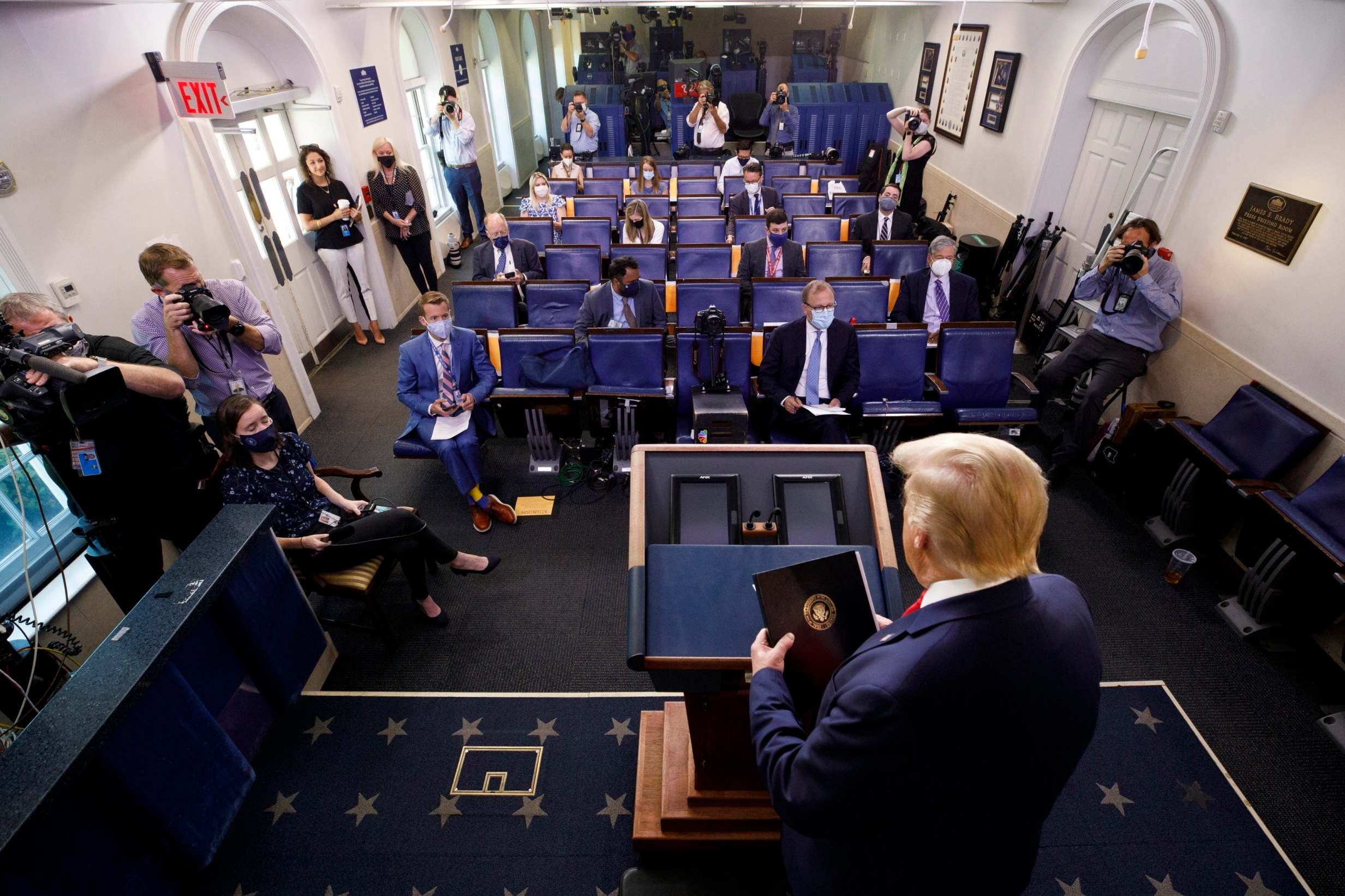Why is Boris Johnson planning White House-style televised daily briefings?
Is this a move by the prime minister to appear more presidential? Or could it be a clever way to engage directly with the public? John Rentoul explains


Boris Johnson’s government is going to overhaul the way it communicates with journalists and the public by launching a daily televised briefing in No 10 in October, in which a spokesperson for the prime minister will make announcements and answer journalists’ questions. What does this mean in practice and why is he doing it?
Is this going to be like the daily coronavirus briefing?
Not really, because it won’t be a minister and expert advisers who field the questions. These will be briefings given by a new spokesperson for the prime minister, who has not yet been recruited. Downing Street sources say that they are looking for an experienced broadcaster to take the role. Whoever it is will instantly become more famous than most cabinet ministers.
These briefings won’t be in the wood-panelled room in No 10 either; they will probably be in the basement of 9 Downing Street, which will be set up as a new media centre. But it probably will have flags in the background.
Why is Boris Johnson doing this?
Probably mostly because the grass always looks greener on the other side of the fence. Prime ministers tend to feel that most of the media are against them, and that, if only they could speak directly to the British people, they could get their message across. They don’t have time to do it all themselves, however, so what they want is someone they trust to speak on their behalf, but they want it to be televised so that everyone can see what the pure undiluted message is before journalists get their grubby hands on it.
Previous prime ministers have held back from televised briefings because dealing with journalists is often a defensive operation of saying “no comment” in various different ways, which does not look great on TV. Johnson’s political team are obviously confident that this would be better for them than the scratchy relationship they already have with much of the media.
Isn’t this just copying the White House?
It is true that the US president’s press briefings have been televised since 1995, under Bill Clinton, but in fact Donald Trump has gone in the other direction, being attacked by journalists and political opponents because Kayleigh McEnany, his press secretary, has more or less abandoned daily briefings.

However, cabinet ministers are likely to be suspicious that this is a “presidential” move to boost Johnson’s power and to diminish their visibility. Whoever the prime minister’s spokesperson is, they will have to range across the whole of government policy, and that is bound to have them speaking for departments. That happens at the moment, off camera, but any differences of emphasis or tone will be more visible.
What do journalists make of it?
Most parliamentary journalists have given the plan a cautious welcome. The Society of Editors has put out a statement: “If the aim of the televised briefings is to enable greater transparency then it will be important that they are of sufficient length and inclusive in nature.” The Johnson government has already tried to exclude some media organisations from some briefings, and the prime minister refuses to give interviews to Channel 4 News or parts of the BBC, and some journalists are worried that holding briefings in No 10 will allow the prime minister’s office to control access, as well as which journalists ask questions.
The plan is for the televised briefing to replace the afternoon session of the twice-daily briefings that were held before the coronavirus crisis, with the morning briefing continuing as before, at which the prime minister’s civil service spokesperson answered questions, on the record but off camera. If that is the case, it is hard to see how journalists can oppose the principle of the afternoon session being put on camera.
Join our commenting forum
Join thought-provoking conversations, follow other Independent readers and see their replies
Comments